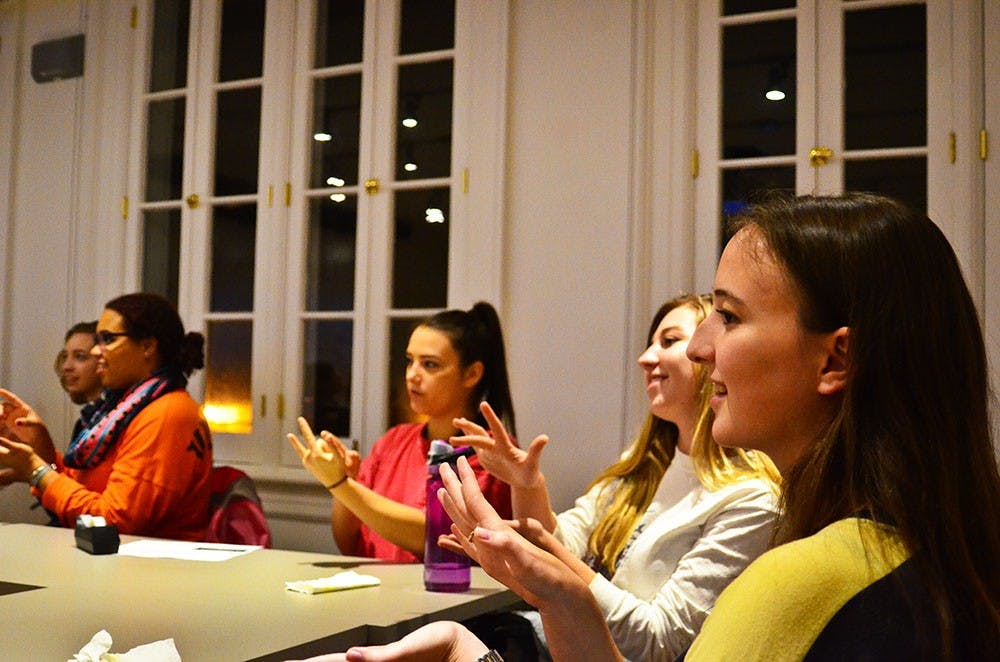This past Wednesday, Deafness Education & Awareness for Students at U.Va. held an American Sign Language workshop at OpenGrounds. The event provided background on deaf culture, basics in fingerspelling and signs related to the upcoming holidays.
The event was an opportunity for students to gain exposure to sign language, said Bethany Pritchard a fourth-year College student and co-president of the group.
“So many people at U.Va. are interested in deaf culture, but they don’t have enough classes to facilitate that,” Pritchard said. “There is not a section everyday like there is for Spanish or French, so we want to provide more exposure to it.”
During the workshop, executive members of the organization demonstrated signs and participants broke out in groups to practice. Within these groups, ASL students helped facilitate the signing.
Second-year College student Victoria Armstrong, co-chair for workshop events, said watching students grasp the concepts was her favorite part of the event.
“I really enjoyed teaching this in a formal way versus an informal way,” Armstrong said. “So if people keep coming, they are going to have a nice foundation and that is really encouraging and it makes me feel good that I am actually helping spread awareness about deaf culture.”
The ASL workshop discussed different components of deaf culture, including a sense of bluntness in how people communicate, and emphasized that communication within the deaf community is not simply signed English. By exploring these components, “DEAFS” seeks to break misconceptions about the deaf community.
Co-president Caitilin Hall, a fourth-year College student, said she hopes the group will utilize workshops in the future to raise awareness and encourage people to engage with the deaf community.
“I hope to reach more U.Va. students with future workshops,” Hall said. “Learning ASL is fun, but more importantly, [it] provides an opportunity to learn more about deaf culture. I hope that students leave with a better understanding of the deaf community and with confidence that they could initiate a conversation with a deaf person.”
The event made a difference by reaching members of the community who didn’t already know ASL, Pritchard said.
“It was encouraging that people came out and want to invest in other cultures outside of their own and were enthusiastic about coming to the next one,” Pritchard said. “I had the fear that it was going to be those who already knew ASL [that came to the event] but there were many that didn’t know ASL, so it’s really exciting that we may have made a difference.”







